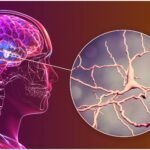Nearly one million people in the United States live with Parkinson’s disease, according to the Parkinson’s Foundation. Despite the disease’s prevalence, there are still many questions that people who are facing the condition may have. Learn the most crucial things you need to know about the disease.
What Causes Parkinson’s Disease?
Parkinson’s disease is a condition that occurs when there’s a loss of nerve cells in the area of the brain called the substantia nigra. This damage causes a severe drop in a brain chemical called dopamine.
Dopamine is crucial in regulating body movement, and a reduction of this chemical is what leads to the majority of Parkinson’s symptoms. Why the damage begins is not clear, though there is a genetic link to the disease.
What Range of Symptoms Does the Disease Have?
Parkinson’s disease can lead to many symptoms, with the most common being tremors. Tremors are involuntary twitching movements that typically affect the head and hands but can affect the torso, too.
Stiff muscles and balance problems are also symptoms. The disease can affect many parts of the body as it progresses, though not every patient experiences every symptom.
How Does a Doctor Diagnose Parkinson’s Disease?
To diagnose the disease, your healthcare provider will examine you and assess your symptoms. You will likely be seen by a specialist, who will ask you to have some neurological tests.
Are There Treatment Options?
Although there’s no cure for Parkinson’s disease, treatments like speech and occupational therapy often help reduce the impacts of the condition, especially if you get treatment early. Another treatment option that could help mitigate some of the symptoms is regenerative medicine, which encourages your body to heal itself.
Living With Parkinson’s Disease
Living a happy and fulfilling life is possible even if you have a Parkison’s disease diagnosis. By working closely with your doctors and trying options like stem cell therapy, you could slow the disease’s progression. Ask your doctor about your options.
This post was written by a medical professional at Stemedix Inc. At Stemedix we provide access to Regenerative Medicine for hair, also Stem cell treatment for Parkinson’s. Regenerative medicine has the natural potential to help improve symptoms sometimes lost from the progression of many conditions.










